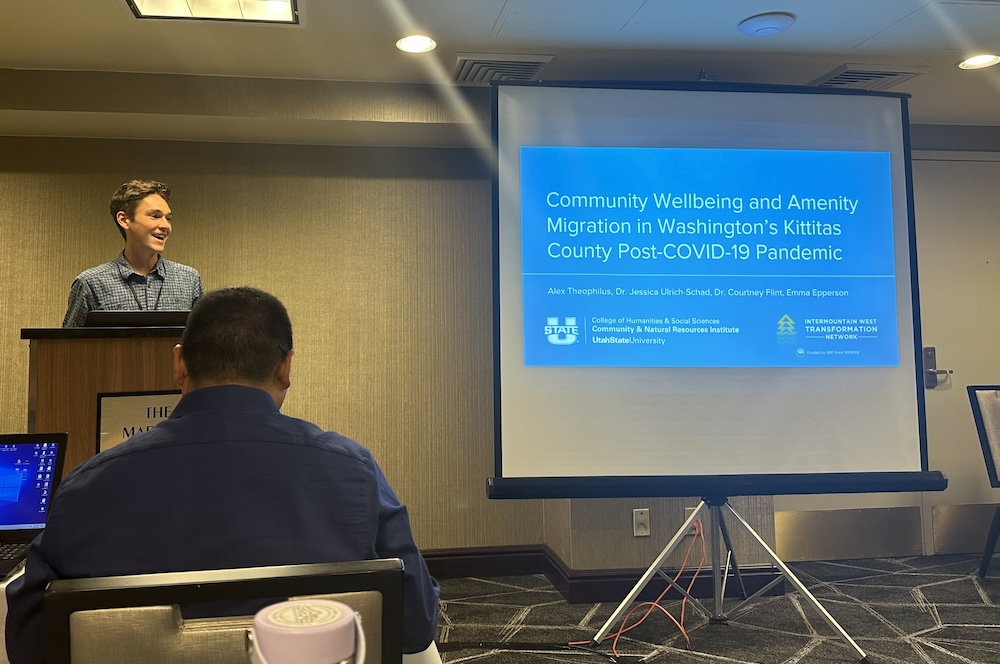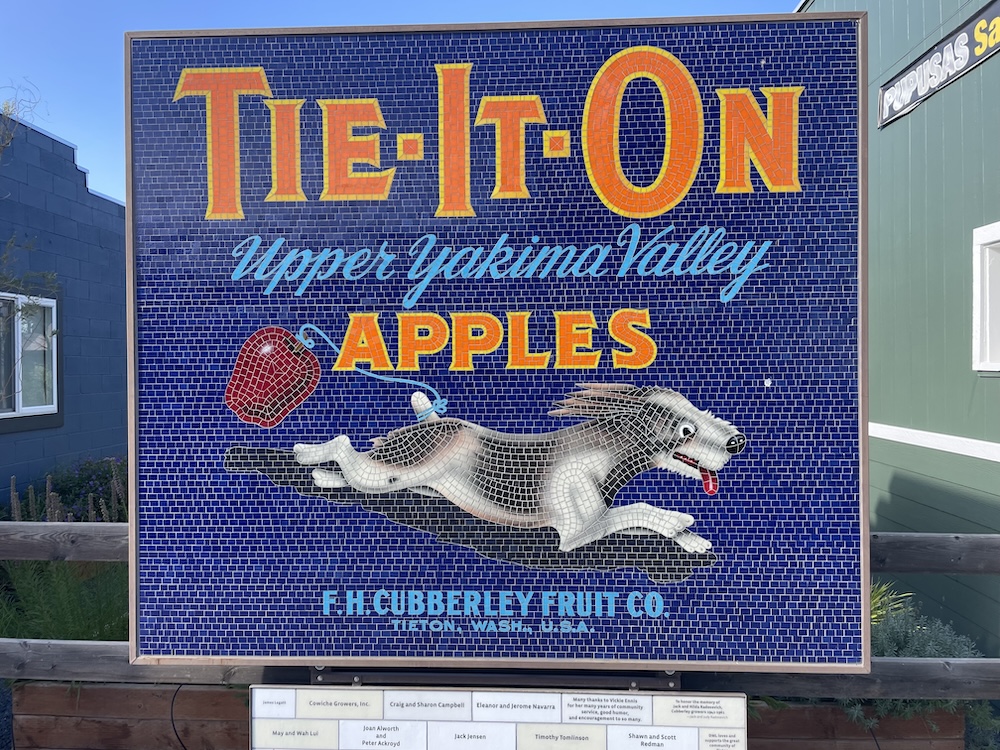August 29, 2024
Over the past year, Alex Theophilus has been deeply involved in community-engaged research within the Upper Yakima River Basin as part of the Transformation Network’s Characterizing Wellbeing Project Charter. His work on this project began in early 2023, when he was a first year Master’s student at Utah State University (USU), and involved extensive interviews and data collection across six communities in Kittitas and Yakima Counties in Washington State.
The project, which was led by USU faculty members Courtney Flint and Jessica Schad, recently wrapped up several outreach efforts by publishing community reports and giving presentations to share their findings with the communities they worked with. Now, as Alex transitions into a PhD program, he reflects on the challenges, successes, and lessons learned throughout this research process.
The research process began with scoping interviews, where local leaders like mayors and city managers shared their thoughts on the study’s potential impact. After identifying interested communities, the team conducted in-depth interviews with key informants, including local government representatives, business owners, and nonprofit leaders. They also welcomed participation from any community members who wished to contribute their perspectives and recruited widely for interviewees. Ultimately, the project conducted interviews in Cle Elum, Roslyn, Ellensburg, the City of Yakima, and Tieton primarily with a few interviews also conducted with community members in Naches. The team conducted over 120 interviews, with about a 50/50 split between key informants and the community members.
Once the team wrapped up interviews in the latter part of 2023, data analysis began. This involved qualitative interview coding to make sure the team could pull out key themes that were important on a community-by-community level. After the coding process, team members started working on preliminary drafts of community reports to share their findings back with the communities they worked with. “We tried to keep them relatively short. As academics, that was somewhat hard, but we wanted to make sure they were relatively accessible,” Alex said.
Drafts of the community reports were shared in the spring of 2024 with community leaders for feedback and to start conversations about how to best share their findings with the communities they worked with. After incorporating this feedback, the reports were finalized and members of the Charter presented to the Yakima County Commission and at a joint study session between the Ellensburg City Council and the Ellensburg Planning Commission over the summer to share their reports and start a dialogue on how the reports may be useful for community planning.
Reflecting on his experience, Alex highlighted the importance of collaboration in community-engaged research. “I really feel like I got to learn from people who have done a lot of research, both on an academic front but also on the community engaged side,” he said. The project emphasized a democratized approach, with weekly meetings among the research team to ensure decisions were made collectively.
Alex shared his appreciation for the main TN team at USU, including Courtney Flint, Jessica Schad, and Master’s student, Emma Epperson. He also expressed gratitude for Claudia Méndez Wright at Central Washington University in Ellensburg, Bailey Holdaway, and their team of undergraduate researchers who helped transcribe, translate, and conduct some interviews.
The team’s four finalized community reports are now available on the TN website and work is ongoing on manuscripts based on this project. Additionally, Alex and Emma both presented at the Rural Sociology Annual Meeting in Wisconsin in July and plan to give additional presentations on their research this year.
For Alex, this project served as an ideal foundation for his future research, as he transitions into a PhD program at USU. “I really feel like I probably could not have asked for a better research project to be a part of as my primary Master’s research assistantship based on the kind of research I want to do in the future,” he noted, emphasizing the unique opportunity to lead a large-scale qualitative study as a Master’s student.
Looking ahead, Alex is eager to continue his research exploring rural communities experiencing “amenity or lifestyle migration” — a phenomenon where people move to areas with high natural amenities, often leading to significant changes in local dynamics — as a part of his PhD work. He is also involved in research projects coming out of the Transformation Network’s Intermountain Synthesis Collaborative Working Group.
Learn more about the Characterizing Wellbeing Charter and read their community reports on the project’s webpage.

Alex Theophilus presenting at the Rural Sociological Society Annual Meeting in Madison, WI in July 2024.

Mosaic tile art in downtown Tieton, WA.